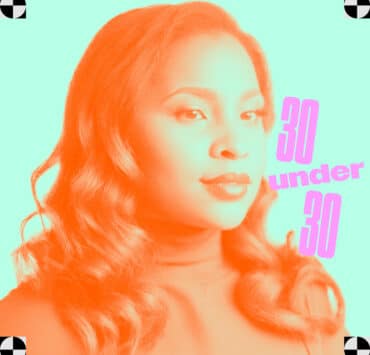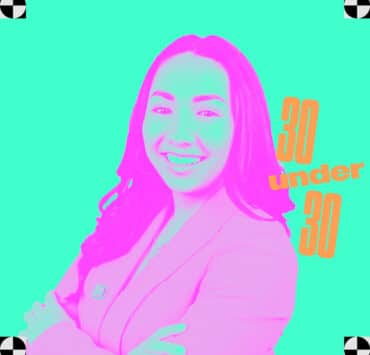|
Getting your Trinity Audio player ready...
|
Nick Fuentes-Zuluaga, a Colombian American born in Bogotá and raised in New Jersey, is a program director at Medable, a healthcare technology startup accelerating clinical trials through digital innovation. He leads cross-functional teams of project managers, data scientists, and engineers to ensure digital trial solutions meet clinical objectives across diverse therapeutic areas and patient populations. Focused on delivering accurate, clean data, Fuentes-Zuluaga’s work helps bring life-saving therapies to patients faster.
What is your greatest career accomplishment to date?
My greatest career accomplishment to date is making a pivot from a career in engineering and pharmaceutical manufacturing to a career in data and tech.
I started my career in pharmaceutical manufacturing and worked as a process engineer on both commercial and clinical lines of drug development. Since I was a kid, I’ve always been extremely curious and constantly found myself learning new things. After learning the operational side of manufacturing, I began to grow an affinity for the data and forecasting side of the business. It was at that point that I realized I wanted to grow and build off that curiosity.
This curiosity led me to pursue a master’s degree in data science, with a concentration in statistics. I’m most proud of this transition, because many times I thought to myself, why would I change careers? Especially as a First-Generation College Student, I had worked so hard for my first degree, I almost felt like I threw that effort away. However, I quickly learned that I was able to leverage both my previous degree and my industry knowledge to the tech world, applying myself to solve problems with meaningful real-world impact.
What is your greatest personal accomplishment to date?
My greatest personal accomplishment to date is being a TED speaker.
In June 2025, I spoke at TEDx Montclair and gave a talk titled, “Difficult Conversations; The One Thing You Still Can’t Automate.” This talk focused on the importance of learning how to have difficult conversations and how AI model training methods like “fine-tuning” can be used to train humans on how to effectively deliver on hard conversations.
This accomplishment means a lot to me because as a kid, I was shy and anxious. To know that the once “shy” kid is now on a TED stage is a testament to how nothing is impossible when you apply a growth mindset.
What do you do today to impact your community?
I am a huge advocate of giving back to my community. I am currently the cochair of the Hispanic Leadership Council at my alma mater, the New Jersey Institute of Technology (NJIT). During my tenure, the university achieved HSI (Hispanic Serving Institute) status from the US Department of Education, nearly a full year ahead of schedule outlined in our strategic plan back in 2020.
For me, this is a full circle moment. I remember being a student and not knowing the difference between a resume and a cover letter. Now, I have the access to support students through career development workshops, mentorship programs, and even scholarships. As a First-Generation College student, this work is fulfilling a dream to help the next generation of students become successful professionals and future leaders.
Where do you see yourself in five years?
It’s hard to truly know where I will be in five years. What I know for sure is that I will continue to grow as a leader and work alongside amazing people to create lasting impact. Whether that be in education, healthcare, or technology, I’m driven by the belief that leadership is about serving others and creating more leaders.
What is the biggest issue that you want to help solve, and why?
The biggest issue I want to help solve is the decline of critical thinking in current and upcoming generations.
In today’s attention economy, it’s incredibly easy to get caught up in the noise. Whether it is the fear of missing out or the pressure of having an unpopular opinion, it worries me that the constant stimulation from social media leaves little room for reflection or disciple of independent thought.
I’ve made it my personal mission to encourage deeper thinking in every interaction I have. Whether it is mentoring someone, speaking on a panel, or having a 1:1 with a colleague or client, I seek to ask thoughtful questions and present ideas in a way that challenges the status quo and encourages genuine discussion.
I truly believe that learning to ask better questions is foundational to personal growth and to growing a better world.
What is a moment when you realized the impact of your work?
An “impact” moment etched into my brain is when I was delivering a speech for my university’s celebration event of becoming a federally recognized HSI. It was a Thursday night and we had selected two students to receive scholarships as a celebration of this milestone.
As I was reading the biography of one of the students, I began to get emotional because this student’s story was similar to my story. I could see the student, sitting between both her mother and father, both tearing up with that same emotion.
At that moment, I decided to go off script and turn to the student’s parents, and speak to them in Spanish. Thanking them for the wonderful job they did in investing into their child’s education. I did this mostly because, for starters, I couldn’t read the words on the paper because I would’ve lost all composure, but mostly because I saw myself and my family in this student. I instantly remembered all the times I received both emotional and financial support and realized that giving back is critical.
It is my job to not only give back financially, but to stand tall and share my story. Not for credit or praise, but to be that mirror for the next generation to see themselves as the leaders of tomorrow.
What advice would 10-year-old you be shocked to hear you followed?
The advice that would most shock my ten-year-old self is: “Do it scared.”
Growing up in a first-generation immigrant family, we lived in survival mode for many years. Risk-taking was seen as dangerous and reckless, so we followed the rules and avoided anything that could jeopardize stability. That mindset shaped a lot of my early years of thinking and decision making.
Over the years, I’ve had a lot of experience, mentors, and inner work that has taught me that “do it scared” doesn’t mean waiting until I am fearless or fully ready. It means that I must do it, whatever it is, even when I feel uncomfortable, because I know that on the other side, no matter the outcome, there will be growth. And that’s something I am proud to say I have and continue to embrace.
What’s a cultural tradition that always brings you joy?
My favorite indicator of a good Latino household is how “hostile” the hospitality is.
Let me explain. It’s often the case that as soon as you walk into a Latino home, you get bombarded with tea, water, or coffee. My favorite iteration of this bombardment is when I am physically unable to leave the home unless I take food with me. Multiple Tupperware is handed to me, despite the fact that I already ate and on the brink of a food coma. The same feeling is felt when people enter my home and the joy in my family’s heart when people leave with a full-stomach and extra food to feed their families for a week.
What song do you listen to that motivates you?
I would have to say Juan Luis Guerra’s “Niagara en Bicicleta.” To be clear, this is not your typical Latin song or merengue you would play at the carne asada.
However, it was during a Spanish class in high school where my professor broke down the lyrics to the song. I will never forget how vivid the lyrics describe a patient admitted to a hospital that lacks resources, funding, and how accurately this 1998 song still reflects the health care scene in many Latin American countries. This song motivates me because it always helps me reframe the difficulties I have in my life. It will also boost my gratitude for whatever season of life I am in, because it reminds me that sometimes, even my worst days, can be the best days for someone else.
—-

